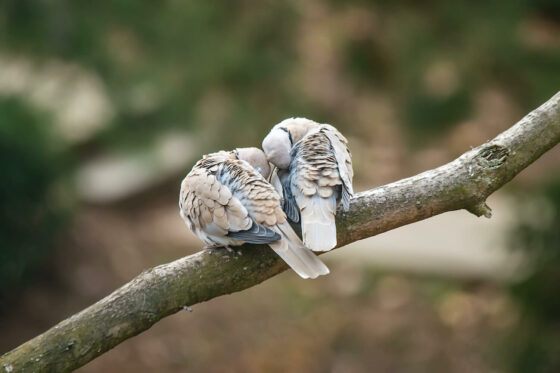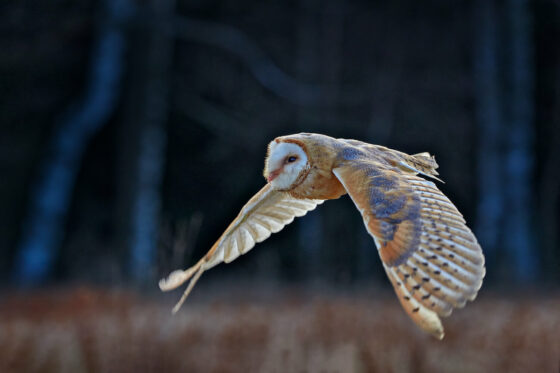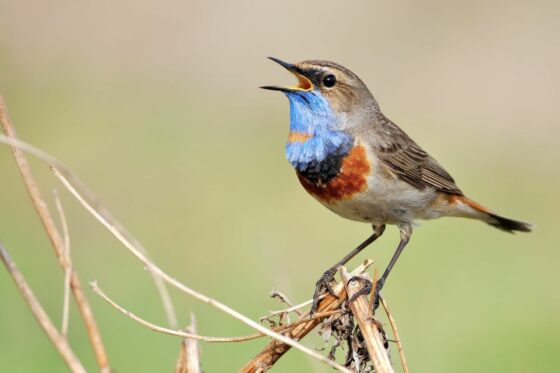Their ability to fly is undisputed but what about the birds’ sensory organs? Can birds smell? Do birds have ears? And how do birds see?
Most birds do not have a very good sense of smell [Photo: Anake Seenadee/ Shutterstock.com] The art of flight places birds on a special pedestal in the realm of physical ability. Only a few representatives from other animal groups share this gift. Songbirds also have lovely bird calls and brighten their surroundings with their bright colours. So what other talents do they have? Can birds smell? How well can they hear and how do they perceive the world around them? We answer these exciting questions in our informative article.
Can birds smell? In fact, the sense of smell is rarely strong in birds. Birds can smell but usually not very well. The sense of smell is used, for example, in the search for a mate, the recognition of prey and enemies, or for orientation but in all these areas it plays only a subordinate role next to sight and hearing. One exception is vultures, which are strongly guided by their sense of smell in their search for carrion – their favourite food – which is more pronounced in them than in most other bird species.
Vultures are actually able to smell pretty well [Photo: Nick Pecker/ Shutterstock.com] Can birds hear? With the beautiful concerts that songbirds give in the morning, it would be a shame if they could not hear them for themselves. And therefore, the answer is also true here: Yes, birds can hear. The bird calls are not there for our pleasure but to send specific signals to conspecifics or even to other bird species. Male birds, for example, mark out a territory with their magnificent song and court a mate within it.
Note: For more information on bird song and the benefits of other bird sounds, see our dedicated article on why birds sing .
Somewhat more difficult to understand, on the other hand, is how birds hear because unlike humans, dogs, and many other animals, they do not have obvious, protruding ears. Not even the long-eared owl, whose appearance has earned it its name, makes it easy for us because the protruding tufts of feathers on its head are purely decorative and not suitable for hearing.
Owls do have ears but they are less obvious than you might think [Photo: Helen J Davies/ Shutterstock.com] Therefore, to prove that birds have ears, you have to look very closely. These are located on the sides of the animal’s head and consist only of small openings, usually surrounded by a tuft of feathers and difficult to see without a close examination of the animal.
Can birds see colours? The sense of sight is probably the most important sense of birds because for orientation during flight, for finding food or for finding a mate this ability is essential. Birds of prey, such as kestrels or buzzards, can see small prey, such as field mice, darting through the field even at a distance of several hundred metres, which becomes difficult for a human even with binoculars.
Birds also have a head start on us when it comes to colour vision because in addition to the classic colour receptors for red, blue and green that we humans possess, birds have another receptor for violet, with which they can even perceive UV light. This means that the world seems even a touch more colourful for birds than it does for us. In addition to the four colour receptors, birds also have another receptor that specifically helps them perceive movement, allowing them to react quickly to danger or moving prey.
Are bee-eaters aware of their own colourfulness? [Photo: Naturalism14/ Shutterstock.com] So birds can smell, hear and even see colours – but when do these senses ever come to rest? Where birds sleep and how they protect themselves from danger and the winter cold can be learned in our dedicated article.
Subscribe to the Plantura newsletter ...and receive exciting gardening tips, special offers and a 10% discount on your next purchase in the
Plantura shop !
{ "products": [ { "name": "All Purpose Plant Food, 1.5kg", "unitPrice" : "Base price: £6.66/kg", "compareAtPriceString": "£12.99", "priceString": "£9.99", "compareAtPrice": 12.99, "price": 9.99, "sale":false, "percentage":"23%", "badge": "angebot", "url": "https://www.uk.plantura.garden/products/all-purpose-plant-food-1-5-kg", "available": true, "availabilityInfo":"", "campaignInfo":"","isSet": false, "priceLabel": "", "compareAtPriceLabel": "","reviewsData":{"reviewCount": 4, "reviewAverageValue": 4.8},"image": "https://www.uk.plantura.garden/cdn/shop/products/plantura-all-purpose-plant-food_1100x.jpg?v=1656335807","tags": "angebot,berries,box tree,cherry laurel,fig tree,Flowers,garlic,granular fertiliser,Hedges & Shrubs,Herbs,Houseplants,lavender,lettuce,oleander,palm tree,palm trees,pampas gras,plant fertiliser,slow release fertiliser,Vegetables","bulletPoints": ["Perfect for a variety of plants in the garden \u0026 on the balcony","Promotes healthy plant growth \u0026 an active soil life","Long-lasting fertiliser that is free from animal products - child \u0026 pet friendly"],"variants" : [ {"sku": "GF-APPF-A03K","available": true, "compareAtPriceString": "£12.99", "priceString": "£9.99", "compareAtPrice": 12.99, "price": 9.99, "sale":true, "percentage":"23%", "priceCurrency" : "GBP", "url" : "https://www.uk.plantura.garden/products/all-purpose-plant-food-1-5-kg?variant=37777826840739","isSet":false}, {"sku": "GF-APPF-3KG1","available": true, "compareAtPriceString": "£25.98", "priceString": "£19.49", "compareAtPrice": 25.98, "price": 19.49, "sale":true, "percentage":"25%", "priceCurrency" : "GBP", "url" : "https://www.uk.plantura.garden/products/all-purpose-plant-food-1-5-kg?variant=37777826873507","isSet":true }, {"sku": "GF-APPF-A06K","available": true, "compareAtPriceString": "£51.96", "priceString": "£37.99", "compareAtPrice": 51.96, "price": 37.99, "sale":true, "percentage":"27%", "priceCurrency" : "GBP", "url" : "https://www.uk.plantura.garden/products/all-purpose-plant-food-1-5-kg?variant=37777826906275","isSet":true }, {"sku": "GF-APPF-A12K","available": false, "compareAtPriceString": "£103.92", "priceString": "£69.99", "compareAtPrice": 103.92, "price": 69.99, "sale":true, "percentage":"33%", "priceCurrency" : "GBP", "url" : "https://www.uk.plantura.garden/products/all-purpose-plant-food-1-5-kg?variant=37777826939043","isSet":true }], "handle" : "all-purpose-plant-food-1-5-kg"}, { "name": "Autumn Lawn Feed 10.5kg, 200m2 coverage", "unitPrice" : "Base price: £2.86/kg", "compareAtPriceString": "", "priceString": "£29.99", "compareAtPrice": 0.0, "price": 29.99, "sale":false, "percentage":"", "badge": "angebot", "url": "https://www.uk.plantura.garden/products/autumn-lawn-feed-10-5-kg", "available": true, "availabilityInfo":"", "campaignInfo":"","isSet": false, "priceLabel": "", "compareAtPriceLabel": "","reviewsData":{"reviewCount": 11, "reviewAverageValue": 4.4},"image": "https://www.uk.plantura.garden/cdn/shop/products/autumn-lawn-feed-10-5kg-plantura_1100x.jpg?v=1657620622","tags": "autumn,autumn fertiliser,granular fertiliser,Lawn,lawn care,plant fertiliser,potassium,slow release fertiliser,soil,spreader,turf,vinasse","bulletPoints": ["Perfect for fertilising lawns from July to October","Promotes a winter-hardy lawn \u0026 fast regeneration in spring","Long-lasting fertiliser that is free from animal products - child \u0026 pet friendly"],"variants" : [ {"sku": "GF-PALF-105K","available": true, "compareAtPriceString": "", "priceString": "£29.99", "compareAtPrice": 0.0, "price": 29.99, "sale":false, "percentage":"", "priceCurrency" : "GBP", "url" : "https://www.uk.plantura.garden/products/autumn-lawn-feed-10-5-kg?variant=37777824219299","isSet":false}, {"sku": "GF-PALF-21KG","available": true, "compareAtPriceString": "£59.98", "priceString": "£56.99", "compareAtPrice": 59.98, "price": 56.99, "sale":true, "percentage":"5%", "priceCurrency" : "GBP", "url" : "https://www.uk.plantura.garden/products/autumn-lawn-feed-10-5-kg?variant=37777824252067","isSet":true }, {"sku": "GF-PALF-42KG","available": true, "compareAtPriceString": "£119.96", "priceString": "£110.99", "compareAtPrice": 119.96, "price": 110.99, "sale":true, "percentage":"7%", "priceCurrency" : "GBP", "url" : "https://www.uk.plantura.garden/products/autumn-lawn-feed-10-5-kg?variant=37777824284835","isSet":true }], "handle" : "autumn-lawn-feed-10-5-kg"}, { "name": "Autumn Lawn Feed 3kg, 60m2 coverage", "unitPrice" : "", "compareAtPriceString": "", "priceString": "£14.99", "compareAtPrice": 0.0, "price": 14.99, "sale":false, "percentage":"", "badge": "angebot", "url": "https://www.uk.plantura.garden/products/autumn-lawn-feed-3-kg", "available": false, "availabilityInfo":"Currently unavailable", "campaignInfo":"","isSet": false, "priceLabel": "", "compareAtPriceLabel": "","reviewsData":{"reviewCount": 8, "reviewAverageValue": 4.9},"image": "https://www.uk.plantura.garden/cdn/shop/products/autumn-lawn-feed-3kg-plantura_1100x.jpg?v=1657615883","tags": "autumn,autumn fertiliser,discount,granular fertiliser,Lawn,lawn care,plant fertiliser,potassium,sale,slow release fertiliser,soil,spreader,turf,vinasse","bulletPoints": ["Perfect for fertilising lawns from July to October","Promotes a winter-hardy lawn \u0026 fast regeneration in spring","Long-lasting fertiliser that is free from animal products - child \u0026 pet friendly"],"variants" : [ {"sku": "GF-PALF-A03K","available": false, "compareAtPriceString": "", "priceString": "£14.99", "compareAtPrice": 0.0, "price": 14.99, "sale":false, "percentage":"", "priceCurrency" : "GBP", "url" : "https://www.uk.plantura.garden/products/autumn-lawn-feed-3-kg?variant=37777828282531","isSet":false}, {"sku": "GF-PALF-A06K","available": false, "compareAtPriceString": "£29.98", "priceString": "£27.99", "compareAtPrice": 29.98, "price": 27.99, "sale":true, "percentage":"7%", "priceCurrency" : "GBP", "url" : "https://www.uk.plantura.garden/products/autumn-lawn-feed-3-kg?variant=37777828315299","isSet":true }], "handle" : "autumn-lawn-feed-3-kg"}, { "name": "Box Tree Moth Trap", "unitPrice" : "", "compareAtPriceString": "", "priceString": "£24.99", "compareAtPrice": 0.0, "price": 24.99, "sale":false, "percentage":"", "badge": "angebot", "url": "https://www.uk.plantura.garden/products/box-tree-moth-trap", "available": false, "availabilityInfo":"Currently unavailable", "campaignInfo":"","isSet": false, "priceLabel": "", "compareAtPriceLabel": "","reviewsData":{"reviewCount": 3, "reviewAverageValue": 5.0},"image": "https://www.uk.plantura.garden/cdn/shop/products/box-tree-moth-trap-plantura_1100x.jpg?v=1657530999","tags": "box tree,box tree caterpillar,Box Tree Moth,pheromone trap","bulletPoints": ["Reusable pheromone trap for monitoring box tree moth activity","For the early detection of infestations - covers an area of up to 180m\u003csub\u003e2\u003c\/sub\u003e","100% insecticide-free - not harmful to humans or pets"],"variants" : [ {"sku": "MT-BTMT-RT01","available": false, "compareAtPriceString": "", "priceString": "£24.99", "compareAtPrice": 0.0, "price": 24.99, "sale":false, "percentage":"", "priceCurrency" : "GBP", "url" : "https://www.uk.plantura.garden/products/box-tree-moth-trap?variant=41520312058019","isSet":false}], "handle" : "box-tree-moth-trap"}, { "name": "Box Tree Moth Trap Refill 6 dispensers", "unitPrice" : "", "compareAtPriceString": "", "priceString": "£7.49", "compareAtPrice": 0.0, "price": 7.49, "sale":false, "percentage":"", "badge": "angebot", "url": "https://www.uk.plantura.garden/products/box-tree-moth-trap-refill", "available": true, "availabilityInfo":"", "campaignInfo":"","isSet": false, "priceLabel": "", "compareAtPriceLabel": "","reviewsData":{"reviewCount": 2, "reviewAverageValue": 2.5},"image": "https://www.uk.plantura.garden/cdn/shop/products/box-tree-moth-trap-refill-plantura_1100x.jpg?v=1657531158","tags": "box tree,box tree caterpillar,Box Tree Moth,pheromone trap","bulletPoints": ["6 dispensers for refilling our reusable Plantura Box Tree Moth Trap","Pheromone dispenser for attracting male box tree moths","100% insecticide free - not harmful to humans or pets"],"variants" : [ {"sku": "MT-BTMT-RD06","available": true, "compareAtPriceString": "", "priceString": "£7.49", "compareAtPrice": 0.0, "price": 7.49, "sale":false, "percentage":"", "priceCurrency" : "GBP", "url" : "https://www.uk.plantura.garden/products/box-tree-moth-trap-refill?variant=41520321429667","isSet":false}], "handle" : "box-tree-moth-trap-refill"}, { "name": "Clothes Moth Traps 6-pack", "unitPrice" : "", "compareAtPriceString": "", "priceString": "£9.99", "compareAtPrice": 0.0, "price": 9.99, "sale":false, "percentage":"", "badge": "angebot", "url": "https://www.uk.plantura.garden/products/clothes-moth-traps", "available": false, "availabilityInfo":"Currently unavailable", "campaignInfo":"","isSet": false, "priceLabel": "", "compareAtPriceLabel": "","reviewsData":{"reviewCount": 7, "reviewAverageValue": 5.0},"image": "https://www.uk.plantura.garden/cdn/shop/products/clothes-moth-traps-plantura_1100x.jpg?v=1657532784","tags": "carpet moths,carpet moths traps,clothes moth traps,clothes moths,clothes moths pheromone traps,moth traps,pheromone traps,sticky traps","bulletPoints": ["6 odourless, long-lasting clothes moth traps ","Ideal for detecting infestations in wardrobes \u0026 storage rooms early on","100% insecticide-free \u0026 non-toxic"],"variants" : [ {"sku": "MT-CMT1-TW06","available": false, "compareAtPriceString": "", "priceString": "£9.99", "compareAtPrice": 0.0, "price": 9.99, "sale":false, "percentage":"", "priceCurrency" : "GBP", "url" : "https://www.uk.plantura.garden/products/clothes-moth-traps?variant=42646008299683","isSet":false}], "handle" : "clothes-moth-traps"}, { "name": "Drought-Resistant Lawn Seed, 2kg, 80m2 coverage", "unitPrice" : "Base price: £12.50/kg", "compareAtPriceString": "£29.99", "priceString": "£24.99", "compareAtPrice": 29.99, "price": 24.99, "sale":false, "percentage":"17%", "badge": "angebot", "url": "https://www.uk.plantura.garden/products/drought-resistant-lawn-seed-2-kg", "available": true, "availabilityInfo":"", "campaignInfo":"","isSet": false, "priceLabel": "", "compareAtPriceLabel": "","reviewsData":{"reviewCount": 2, "reviewAverageValue": 4.5},"image": "https://www.uk.plantura.garden/cdn/shop/products/drought-resistant-lawn-seed-plantura_1100x.jpg?v=1657716694","tags": "angebot,grass seed,grasses,Lawn,lawn seed,meadow,New Lawn,rsm,seed,seeds,soil,sowing,spreader","bulletPoints": ["Perfect for regions with hot \u0026 dry summers","Saves water with heat-tolerant \u0026 deep-rooted grasses","Premium lawn seed mixture with high-quality, certified grass varieties"],"variants" : [ {"sku": "LS-PDRL-02KG","available": true, "compareAtPriceString": "£29.99", "priceString": "£24.99", "compareAtPrice": 29.99, "price": 24.99, "sale":true, "percentage":"17%", "priceCurrency" : "GBP", "url" : "https://www.uk.plantura.garden/products/drought-resistant-lawn-seed-2-kg?variant=37777803018403","isSet":false}, {"sku": "LS-PDRL-04KG","available": true, "compareAtPriceString": "£59.98", "priceString": "£44.99", "compareAtPrice": 59.98, "price": 44.99, "sale":true, "percentage":"25%", "priceCurrency" : "GBP", "url" : "https://www.uk.plantura.garden/products/drought-resistant-lawn-seed-2-kg?variant=37777803051171","isSet":true }, {"sku": "LS-PDRL-10KG","available": true, "compareAtPriceString": "£149.95", "priceString": "£99.99", "compareAtPrice": 149.95, "price": 99.99, "sale":true, "percentage":"33%", "priceCurrency" : "GBP", "url" : "https://www.uk.plantura.garden/products/drought-resistant-lawn-seed-2-kg?variant=37777803116707","isSet":true }], "handle" : "drought-resistant-lawn-seed-2-kg"}, { "name": "Flower Food, 1.5kg", "unitPrice" : "Base price: £6.66/kg", "compareAtPriceString": "£12.99", "priceString": "£9.99", "compareAtPrice": 12.99, "price": 9.99, "sale":false, "percentage":"23%", "badge": "angebot", "url": "https://www.uk.plantura.garden/products/flower-food-1-5-kg", "available": true, "availabilityInfo":"", "campaignInfo":"","isSet": false, "priceLabel": "", "compareAtPriceLabel": "","reviewsData":null,"image": "https://www.uk.plantura.garden/cdn/shop/products/plantura-flower-food_1100x.jpg?v=1656336129","tags": "angebot,clematis,flowering plants,Flowers,fuchsia,garden flowers,geranium,granular fertiliser,hibiscus,lily,oleander,passion flower,peony,petunia,plant fertiliser,slow release fertiliser,vinasse","bulletPoints": ["Perfect for flowering plants in the garden \u0026 on the balcony","For healthier plants with beautiful \u0026 long-lasting blossoms","Long-lasting fertiliser that is free from animal products - child \u0026 pet friendly"],"variants" : [ {"sku": "GF-PFF1-F15K","available": true, "compareAtPriceString": "£12.99", "priceString": "£9.99", "compareAtPrice": 12.99, "price": 9.99, "sale":true, "percentage":"23%", "priceCurrency" : "GBP", "url" : "https://www.uk.plantura.garden/products/flower-food-1-5-kg?variant=37777827528867","isSet":false}, {"sku": "GF-PFF1-F03K","available": true, "compareAtPriceString": "£25.98", "priceString": "£19.49", "compareAtPrice": 25.98, "price": 19.49, "sale":true, "percentage":"25%", "priceCurrency" : "GBP", "url" : "https://www.uk.plantura.garden/products/flower-food-1-5-kg?variant=37777827561635","isSet":true }, {"sku": "GF-PFF1-F06K","available": true, "compareAtPriceString": "£51.96", "priceString": "£37.99", "compareAtPrice": 51.96, "price": 37.99, "sale":true, "percentage":"27%", "priceCurrency" : "GBP", "url" : "https://www.uk.plantura.garden/products/flower-food-1-5-kg?variant=37777827627171","isSet":true }, {"sku": "GF-PFF1-F12K","available": true, "compareAtPriceString": "£103.92", "priceString": "£69.99", "compareAtPrice": 103.92, "price": 69.99, "sale":true, "percentage":"33%", "priceCurrency" : "GBP", "url" : "https://www.uk.plantura.garden/products/flower-food-1-5-kg?variant=37777827659939","isSet":true }], "handle" : "flower-food-1-5-kg"}, { "name": "Hard-Wearing Lawn Seed, 2kg, 100m2 coverage", "unitPrice" : "Base price: £10.00/kg", "compareAtPriceString": "£25.99", "priceString": "£19.99", "compareAtPrice": 25.99, "price": 19.99, "sale":false, "percentage":"23%", "badge": "angebot", "url": "https://www.uk.plantura.garden/products/hard-wearing-lawn-seed-2-kg", "available": true, "availabilityInfo":"", "campaignInfo":"","isSet": false, "priceLabel": "", "compareAtPriceLabel": "","reviewsData":{"reviewCount": 1, "reviewAverageValue": 5.0},"image": "https://www.uk.plantura.garden/cdn/shop/products/hard-wearing-lawn-seed-plantura_1100x.jpg?v=1657796876","tags": "angebot,children,grass seed,grasses,Lawn,lawn seed,meadow,New Lawn,rsm,seed,seeds,soil,sowing,sports turf,spreader,tough lawn","bulletPoints": ["Creates particularly strong \u0026 durable lawns","Contains regenerative lawn seeds for thick turf","Premium lawn seed mixture with high-quality, certified grass varieties"],"variants" : [ {"sku": "LS-PHWL-02KG","available": true, "compareAtPriceString": "£25.99", "priceString": "£19.99", "compareAtPrice": 25.99, "price": 19.99, "sale":true, "percentage":"23%", "priceCurrency" : "GBP", "url" : "https://www.uk.plantura.garden/products/hard-wearing-lawn-seed-2-kg?variant=37777804951715","isSet":false}, {"sku": "LS-PHWL-04KG","available": true, "compareAtPriceString": "£51.98", "priceString": "£37.99", "compareAtPrice": 51.98, "price": 37.99, "sale":true, "percentage":"27%", "priceCurrency" : "GBP", "url" : "https://www.uk.plantura.garden/products/hard-wearing-lawn-seed-2-kg?variant=37777804984483","isSet":true }, {"sku": "LS-PHWL-10KG","available": true, "compareAtPriceString": "£129.95", "priceString": "£79.99", "compareAtPrice": 129.95, "price": 79.99, "sale":true, "percentage":"38%", "priceCurrency" : "GBP", "url" : "https://www.uk.plantura.garden/products/hard-wearing-lawn-seed-2-kg?variant=37777805017251","isSet":true }], "handle" : "hard-wearing-lawn-seed-2-kg"}, { "name": "Hydrangea Food, 1.5kg", "unitPrice" : "Base price: £8.66/kg", "compareAtPriceString": "", "priceString": "£12.99", "compareAtPrice": 0.0, "price": 12.99, "sale":false, "percentage":"", "badge": "angebot", "url": "https://www.uk.plantura.garden/products/hydrangea-food-1-5-kg", "available": true, "availabilityInfo":"", "campaignInfo":"","isSet": false, "priceLabel": "", "compareAtPriceLabel": "","reviewsData":{"reviewCount": 5, "reviewAverageValue": 5.0},"image": "https://www.uk.plantura.garden/cdn/shop/products/plantura-hydrangea-food_1100x.jpg?v=1656337945","tags": "azalea,ericaceous fertiliser,Flowers,granular fertiliser,hydrangea arborescens,hydrangea macrophylla,hydrangea paniculata,hydrangea petiolaris,hydrangea serrata,Hydrangeas,plant fertiliser,rhododendron,slow release fertiliser,vinasse","bulletPoints": ["For beautiful hydrangeas with lush blooms in pots \u0026 flower beds","Prevents common deficiency symptoms \u0026 supports healthy plant growth","Long-lasting fertiliser that is free from animal products - child \u0026 pet friendly"],"variants" : [ {"sku": "GF-PHF1-H15K","available": true, "compareAtPriceString": "", "priceString": "£12.99", "compareAtPrice": 0.0, "price": 12.99, "sale":false, "percentage":"", "priceCurrency" : "GBP", "url" : "https://www.uk.plantura.garden/products/hydrangea-food-1-5-kg?variant=37777820614819","isSet":false}, {"sku": "GF-PHF1-H03K","available": true, "compareAtPriceString": "£25.98", "priceString": "£24.99", "compareAtPrice": 25.98, "price": 24.99, "sale":true, "percentage":"4%", "priceCurrency" : "GBP", "url" : "https://www.uk.plantura.garden/products/hydrangea-food-1-5-kg?variant=37777820647587","isSet":true }, {"sku": "GF-PHF1-H06K","available": false, "compareAtPriceString": "£51.96", "priceString": "£47.99", "compareAtPrice": 51.96, "price": 47.99, "sale":true, "percentage":"8%", "priceCurrency" : "GBP", "url" : "https://www.uk.plantura.garden/products/hydrangea-food-1-5-kg?variant=37777820680355","isSet":true }, {"sku": "GF-PHF1-H12K","available": false, "compareAtPriceString": "£103.92", "priceString": "£93.99", "compareAtPrice": 103.92, "price": 93.99, "sale":true, "percentage":"10%", "priceCurrency" : "GBP", "url" : "https://www.uk.plantura.garden/products/hydrangea-food-1-5-kg?variant=37777820713123","isSet":true }], "handle" : "hydrangea-food-1-5-kg"}, { "name": "Lawn Feed 10.5kg, 250m2 coverage", "unitPrice" : "Base price: £2.28/kg", "compareAtPriceString": "£29.99", "priceString": "£23.99", "compareAtPrice": 29.99, "price": 23.99, "sale":false, "percentage":"20%", "badge": "angebot", "url": "https://www.uk.plantura.garden/products/lawn-feed-10-5-kg", "available": true, "availabilityInfo":"", "campaignInfo":"","isSet": false, "priceLabel": "", "compareAtPriceLabel": "","reviewsData":{"reviewCount": 4, "reviewAverageValue": 5.0},"image": "https://www.uk.plantura.garden/cdn/shop/products/lawn-feed-10-5kg-plantura_1100x.jpg?v=1657613812","tags": "angebot,granular fertiliser,Lawn,lawn care,nitrogen fertiliser,plant fertiliser,Rasendünger,Rasenrelevant (ohne Herbstrasen),slow release fertiliser,soil,spreader,turf,vinasse","bulletPoints": ["Perfect for a healthy \u0026 lush green lawn without moss","Supports your lawn with all the nutrients it needs in spring \u0026 summer","Long-lasting fertiliser that is free from animal products - child \u0026 pet friendly"],"variants" : [ {"sku": "GF-PLF3-105K","available": true, "compareAtPriceString": "£29.99", "priceString": "£23.99", "compareAtPrice": 29.99, "price": 23.99, "sale":true, "percentage":"20%", "priceCurrency" : "GBP", "url" : "https://www.uk.plantura.garden/products/lawn-feed-10-5-kg?variant=37777822941347","isSet":false}, {"sku": "GF-PLF3-21KG","available": true, "compareAtPriceString": "£59.98", "priceString": "£44.99", "compareAtPrice": 59.98, "price": 44.99, "sale":true, "percentage":"25%", "priceCurrency" : "GBP", "url" : "https://www.uk.plantura.garden/products/lawn-feed-10-5-kg?variant=37777823006883","isSet":true }, {"sku": "GF-PLF3-42KG","available": true, "compareAtPriceString": "£119.96", "priceString": "£79.99", "compareAtPrice": 119.96, "price": 79.99, "sale":true, "percentage":"33%", "priceCurrency" : "GBP", "url" : "https://www.uk.plantura.garden/products/lawn-feed-10-5-kg?variant=37777823039651","isSet":true }], "handle" : "lawn-feed-10-5-kg"}, { "name": "Lawn Feed 3kg, 70m2 coverage", "unitPrice" : "Base price: £3.00/kg", "compareAtPriceString": "£14.99", "priceString": "£8.99", "compareAtPrice": 14.99, "price": 8.99, "sale":false, "percentage":"40%", "badge": "angebot", "url": "https://www.uk.plantura.garden/products/lawn-feed-3-kg", "available": true, "availabilityInfo":"", "campaignInfo":"","isSet": false, "priceLabel": "", "compareAtPriceLabel": "","reviewsData":{"reviewCount": 2, "reviewAverageValue": 5.0},"image": "https://www.uk.plantura.garden/cdn/shop/products/lawn-feed-3kg-plantura_1100x.jpg?v=1657612205","tags": "angebot,granular fertiliser,Lawn,lawn care,nitrogen fertiliser,plant fertiliser,Rasenrelevant (ohne Herbstrasen),slow release fertiliser,soil,spreader,turf,vinasse","bulletPoints": ["Perfect for a healthy \u0026 lush green lawn without moss","Supports your lawn with all the nutrients it needs in spring \u0026 summer","Long-lasting fertiliser that is free from animal products - child \u0026 pet friendly"],"variants" : [ {"sku": "GF-PLF1-L03K","available": true, "compareAtPriceString": "£14.99", "priceString": "£8.99", "compareAtPrice": 14.99, "price": 8.99, "sale":true, "percentage":"40%", "priceCurrency" : "GBP", "url" : "https://www.uk.plantura.garden/products/lawn-feed-3-kg?variant=37777828905123","isSet":false}, {"sku": "GF-PLF1-L06K","available": true, "compareAtPriceString": "£29.98", "priceString": "£16.99", "compareAtPrice": 29.98, "price": 16.99, "sale":true, "percentage":"43%", "priceCurrency" : "GBP", "url" : "https://www.uk.plantura.garden/products/lawn-feed-3-kg?variant=37777828937891","isSet":true }], "handle" : "lawn-feed-3-kg"}, { "name": "Lawn Overseeding Mix, 2kg, 100m2", "unitPrice" : "Base price: £10.00/kg", "compareAtPriceString": "£25.99", "priceString": "£19.99", "compareAtPrice": 25.99, "price": 19.99, "sale":false, "percentage":"23%", "badge": "angebot", "url": "https://www.uk.plantura.garden/products/lawn-overseeding-mix-2-kg", "available": true, "availabilityInfo":"", "campaignInfo":"","isSet": false, "priceLabel": "", "compareAtPriceLabel": "","reviewsData":{"reviewCount": 9, "reviewAverageValue": 4.9},"image": "https://www.uk.plantura.garden/cdn/shop/products/lawn-overseeding-mix-2-kg-plantura_1100x.jpg?v=1657627004","tags": "angebot,grass seed,grasses,Lawn,lawn care,lawn seed,meadow,repair,reseeding,rsm,seed,seeds,soil,spreader,Thin Lawn","bulletPoints": ["Perfect for fixing thinning \u0026 weedy lawns","Repairs lawns quickly \u0026 reliably - for lush green grass","High-quality, certified grass varieties \u0026 coated seeds"],"variants" : [ {"sku": "LS-PLOM-02KG","available": true, "compareAtPriceString": "£25.99", "priceString": "£19.99", "compareAtPrice": 25.99, "price": 19.99, "sale":true, "percentage":"23%", "priceCurrency" : "GBP", "url" : "https://www.uk.plantura.garden/products/lawn-overseeding-mix-2-kg?variant=37777799938211","isSet":false}, {"sku": "LS-PLOM-04KG","available": true, "compareAtPriceString": "£51.98", "priceString": "£37.99", "compareAtPrice": 51.98, "price": 37.99, "sale":true, "percentage":"27%", "priceCurrency" : "GBP", "url" : "https://www.uk.plantura.garden/products/lawn-overseeding-mix-2-kg?variant=37777799970979","isSet":true }, {"sku": "LS-PLOM-10KG","available": true, "compareAtPriceString": "£129.95", "priceString": "£79.99", "compareAtPrice": 129.95, "price": 79.99, "sale":true, "percentage":"38%", "priceCurrency" : "GBP", "url" : "https://www.uk.plantura.garden/products/lawn-overseeding-mix-2-kg?variant=37777800003747","isSet":true }], "handle" : "lawn-overseeding-mix-2-kg"}, { "name": "Lawn Overseeding Mix,1kg, 50m2", "unitPrice" : "Base price: £16.99/kg", "compareAtPriceString": "", "priceString": "£16.99", "compareAtPrice": 0.0, "price": 16.99, "sale":false, "percentage":"", "badge": "angebot", "url": "https://www.uk.plantura.garden/products/lawn-overseeding-mix-1kg", "available": true, "availabilityInfo":"", "campaignInfo":"","isSet": false, "priceLabel": "", "compareAtPriceLabel": "","reviewsData":{"reviewCount": 1, "reviewAverageValue": 5.0},"image": "https://www.uk.plantura.garden/cdn/shop/products/lawn-overseeding-mix-1-kg-plantura_1200x.jpg?v=1657702293","tags": "grass seed,grasses,Lawn,lawn care,lawn seed,meadow,repair,reseeding,rsm,seed,seeds,soil,spreader,Thin Lawn","bulletPoints": ["Perfect for fixing thinning \u0026 weedy lawns","Repairs lawns quickly \u0026 reliably - for lush green grass","High-quality, certified grass varieties \u0026 coated seeds"],"variants" : [ {"sku": "LS-PLOM-01KG","available": true, "compareAtPriceString": "", "priceString": "£16.99", "compareAtPrice": 0.0, "price": 16.99, "sale":false, "percentage":"", "priceCurrency" : "GBP", "url" : "https://www.uk.plantura.garden/products/lawn-overseeding-mix-1kg?variant=37777801412771","isSet":false}], "handle" : "lawn-overseeding-mix-1kg"}, { "name": "Lawn Repair Mix, 1.5kg, 10m2 coverage", "unitPrice" : "Base price: £8.66/kg", "compareAtPriceString": "£16.99", "priceString": "£12.99", "compareAtPrice": 16.99, "price": 12.99, "sale":false, "percentage":"24%", "badge": "angebot", "url": "https://www.uk.plantura.garden/products/lawn-repair-mix-1-5-kg", "available": true, "availabilityInfo":"", "campaignInfo":"","isSet": false, "priceLabel": "", "compareAtPriceLabel": "","reviewsData":{"reviewCount": 5, "reviewAverageValue": 4.8},"image": "https://www.uk.plantura.garden/cdn/shop/products/lawn-repair-mix-plantura_1100x.jpg?v=1657877879","tags": "angebot,grass seed,grasses,Lawn,lawn care,lawn seed,meadow,overseeding,patchy grass,Patchy Lawn,reseeding,rsm,seed,seeds,soil,spreader","bulletPoints": ["Repairs patches in the lawn quickly \u0026 reliably","With fertiliser and lime for a greener \u0026 thicker lawn","Premium lawn seed mixture with high-quality, certified grass varieties"],"variants" : [ {"sku": "LS-PLRM-015G","available": true, "compareAtPriceString": "£16.99", "priceString": "£12.99", "compareAtPrice": 16.99, "price": 12.99, "sale":true, "percentage":"24%", "priceCurrency" : "GBP", "url" : "https://www.uk.plantura.garden/products/lawn-repair-mix-1-5-kg?variant=37777802002595","isSet":false}, {"sku": "LS-PLRM-03KG","available": true, "compareAtPriceString": "£33.98", "priceString": "£24.99", "compareAtPrice": 33.98, "price": 24.99, "sale":true, "percentage":"26%", "priceCurrency" : "GBP", "url" : "https://www.uk.plantura.garden/products/lawn-repair-mix-1-5-kg?variant=37777802035363","isSet":true }, {"sku": "LS-PLRM-06KG","available": true, "compareAtPriceString": "£67.96", "priceString": "£44.99", "compareAtPrice": 67.96, "price": 44.99, "sale":true, "percentage":"34%", "priceCurrency" : "GBP", "url" : "https://www.uk.plantura.garden/products/lawn-repair-mix-1-5-kg?variant=37777802068131","isSet":true }], "handle" : "lawn-repair-mix-1-5-kg"}, { "name": "Liquid Citrus Food, 800ml", "unitPrice" : "", "compareAtPriceString": "", "priceString": "£10.99", "compareAtPrice": 0.0, "price": 10.99, "sale":false, "percentage":"", "badge": "angebot", "url": "https://www.uk.plantura.garden/products/liquid-citrus-food-800-ml", "available": false, "availabilityInfo":"Currently unavailable", "campaignInfo":"","isSet": false, "priceLabel": "", "compareAtPriceLabel": "","reviewsData":{"reviewCount": 8, "reviewAverageValue": 4.9},"image": "https://www.uk.plantura.garden/cdn/shop/products/liquid-citrus-food-plantura_1100x.jpg?v=1657542983","tags": "citrus plants,CitrusMediterraneanplants,clementine,fig,grapefruit,kumquat,lemon,lemon tree,lime,liquid fertiliser,mandarin,mediterranean plants,olive,olive tree,orange,palm tree,palm tree fertiliser,plant fertiliser,vinasse","bulletPoints": ["Perfect for all citrus plants \u0026 Mediterranean plants","Liquid fertiliser for healthy plants \u0026 aromatic fruit","Quick \u0026 easy application - child \u0026 pet friendly"],"variants" : [ {"sku": "LF-LCF1-C80M","available": false, "compareAtPriceString": "", "priceString": "£10.99", "compareAtPrice": 0.0, "price": 10.99, "sale":false, "percentage":"", "priceCurrency" : "GBP", "url" : "https://www.uk.plantura.garden/products/liquid-citrus-food-800-ml?variant=37777795973283","isSet":false}, {"sku": "LF-LCF1-C16L","available": false, "compareAtPriceString": "£21.98", "priceString": "£20.99", "compareAtPrice": 21.98, "price": 20.99, "sale":true, "percentage":"5%", "priceCurrency" : "GBP", "url" : "https://www.uk.plantura.garden/products/liquid-citrus-food-800-ml?variant=37777796006051","isSet":true }, {"sku": "LF-LCF1-C32L","available": false, "compareAtPriceString": "£43.96", "priceString": "£40.99", "compareAtPrice": 43.96, "price": 40.99, "sale":true, "percentage":"7%", "priceCurrency" : "GBP", "url" : "https://www.uk.plantura.garden/products/liquid-citrus-food-800-ml?variant=37777796038819","isSet":true }, {"sku": "LF-LCF1-C96L","available": false, "compareAtPriceString": "£131.88", "priceString": "£119.99", "compareAtPrice": 131.88, "price": 119.99, "sale":true, "percentage":"9%", "priceCurrency" : "GBP", "url" : "https://www.uk.plantura.garden/products/liquid-citrus-food-800-ml?variant=37777796071587","isSet":true }], "handle" : "liquid-citrus-food-800-ml"}, { "name": "Liquid Flower Food, 800ml", "unitPrice" : "Base price: £13.74/l", "compareAtPriceString": "", "priceString": "£10.99", "compareAtPrice": 0.0, "price": 10.99, "sale":false, "percentage":"", "badge": "angebot", "url": "https://www.uk.plantura.garden/products/liquid-flower-food-800-ml", "available": true, "availabilityInfo":"", "campaignInfo":"","isSet": false, "priceLabel": "", "compareAtPriceLabel": "","reviewsData":{"reviewCount": 1, "reviewAverageValue": 5.0},"image": "https://www.uk.plantura.garden/cdn/shop/products/liquid-flower-food-plantura_1100x.jpg?v=1657542082","tags": "balcony flowers,clematis,FlowerBalconyplants,flowering plants,Flowers,fuchsia,geranium,hibiscus,lily,liquid fertiliser,oleander,passion flower,peony,petunia,plant fertiliser,vinasse","bulletPoints": ["Perfect for all flowers \u0026 balcony plants","Liquid fertiliser for a lush blossom throughout the season","Quick \u0026 easy application - child \u0026 pet friendly"],"variants" : [ {"sku": "LF-LFF1-F80M","available": true, "compareAtPriceString": "", "priceString": "£10.99", "compareAtPrice": 0.0, "price": 10.99, "sale":false, "percentage":"", "priceCurrency" : "GBP", "url" : "https://www.uk.plantura.garden/products/liquid-flower-food-800-ml?variant=37777796530339","isSet":false}, {"sku": "LF-LFF1-F16L","available": true, "compareAtPriceString": "£21.98", "priceString": "£20.99", "compareAtPrice": 21.98, "price": 20.99, "sale":true, "percentage":"5%", "priceCurrency" : "GBP", "url" : "https://www.uk.plantura.garden/products/liquid-flower-food-800-ml?variant=37777796563107","isSet":true }, {"sku": "LF-LFF1-F32L","available": true, "compareAtPriceString": "£43.96", "priceString": "£40.99", "compareAtPrice": 43.96, "price": 40.99, "sale":true, "percentage":"7%", "priceCurrency" : "GBP", "url" : "https://www.uk.plantura.garden/products/liquid-flower-food-800-ml?variant=37777796595875","isSet":true }, {"sku": "LF-LFF1-F96L","available": true, "compareAtPriceString": "£131.88", "priceString": "£119.99", "compareAtPrice": 131.88, "price": 119.99, "sale":true, "percentage":"9%", "priceCurrency" : "GBP", "url" : "https://www.uk.plantura.garden/products/liquid-flower-food-800-ml?variant=37777796628643","isSet":true }], "handle" : "liquid-flower-food-800-ml"}, { "name": "Liquid Houseplant Food, 800ml", "unitPrice" : "", "compareAtPriceString": "£10.99", "priceString": "£8.99", "compareAtPrice": 10.99, "price": 8.99, "sale":true, "percentage":"18%", "badge": "angebot", "url": "https://www.uk.plantura.garden/products/liquid-houseplant-food-800-ml", "available": false, "availabilityInfo":"Currently unavailable", "campaignInfo":"","isSet": false, "priceLabel": "", "compareAtPriceLabel": "","reviewsData":{"reviewCount": 7, "reviewAverageValue": 5.0},"image": "https://www.uk.plantura.garden/cdn/shop/products/liquid-houseplant-food-plantura_1100x.jpg?v=1657542279","tags": "angebot,box tree,cactus,Herbs,Houseplants,indoor plant,liquid fertiliser,monstera,palm tree,plant fertiliser,pot,succulent,vinasse","bulletPoints": ["Perfect for a wide variety of houseplants \u0026 foliage plants","Liquid fertiliser for robust plants \u0026 healthy growth","Quick \u0026 easy application - child \u0026 pet friendly"],"variants" : [ {"sku": "LF-LHF1-H80M","available": false, "compareAtPriceString": "£10.99", "priceString": "£8.99", "compareAtPrice": 10.99, "price": 8.99, "sale":true, "percentage":"18%", "priceCurrency" : "GBP", "url" : "https://www.uk.plantura.garden/products/liquid-houseplant-food-800-ml?variant=37777795088547","isSet":false}, {"sku": "LF-LHF1-H16L","available": false, "compareAtPriceString": "£21.98", "priceString": "£16.99", "compareAtPrice": 21.98, "price": 16.99, "sale":true, "percentage":"23%", "priceCurrency" : "GBP", "url" : "https://www.uk.plantura.garden/products/liquid-houseplant-food-800-ml?variant=37777795154083","isSet":true }, {"sku": "LF-LHF1-H32L","available": false, "compareAtPriceString": "£43.96", "priceString": "£32.99", "compareAtPrice": 43.96, "price": 32.99, "sale":true, "percentage":"25%", "priceCurrency" : "GBP", "url" : "https://www.uk.plantura.garden/products/liquid-houseplant-food-800-ml?variant=37777795186851","isSet":true }, {"sku": "LF-LHF1-H96L","available": false, "compareAtPriceString": "£131.88", "priceString": "£96.99", "compareAtPrice": 131.88, "price": 96.99, "sale":true, "percentage":"26%", "priceCurrency" : "GBP", "url" : "https://www.uk.plantura.garden/products/liquid-houseplant-food-800-ml?variant=37777795219619","isSet":true }], "handle" : "liquid-houseplant-food-800-ml"}, { "name": "Liquid Tomato Food, 800ml", "unitPrice" : "Base price: £11.24/l", "compareAtPriceString": "£10.99", "priceString": "£8.99", "compareAtPrice": 10.99, "price": 8.99, "sale":false, "percentage":"18%", "badge": "angebot", "url": "https://www.uk.plantura.garden/products/liquid-tomato-food-800-ml", "available": true, "availabilityInfo":"", "campaignInfo":"","isSet": false, "priceLabel": "", "compareAtPriceLabel": "","reviewsData":{"reviewCount": 1, "reviewAverageValue": 5.0},"image": "https://www.uk.plantura.garden/cdn/shop/products/liquid-tomato-food-plantura_1100x.jpg?v=1657542588","tags": "angebot,aubergine,bean,berry fertiliser,carrot,cauliflower,chili,chilli,courgette,cucumber,garlic,liquid fertiliser,onion,pepper,plant fertiliser,potassium,potato,pumpkin,radish,rhubarb,strawberry,Tomatoes,vegetable,Vegetables,vinasse","bulletPoints": ["Perfect for tomatoes \u0026 other vegetables","Liquid fertiliser for healthy plant growth \u0026 an abundant harvest","Quick \u0026 easy application - child \u0026 pet friendly"],"variants" : [ {"sku": "LF-LTF1-T80M","available": true, "compareAtPriceString": "£10.99", "priceString": "£8.99", "compareAtPrice": 10.99, "price": 8.99, "sale":true, "percentage":"18%", "priceCurrency" : "GBP", "url" : "https://www.uk.plantura.garden/products/liquid-tomato-food-800-ml?variant=37777795580067","isSet":false}, {"sku": "LF-LTF1-T16L","available": true, "compareAtPriceString": "£21.98", "priceString": "£16.99", "compareAtPrice": 21.98, "price": 16.99, "sale":true, "percentage":"23%", "priceCurrency" : "GBP", "url" : "https://www.uk.plantura.garden/products/liquid-tomato-food-800-ml?variant=37777795612835","isSet":true }, {"sku": "LF-LTF1-T32L","available": true, "compareAtPriceString": "£43.96", "priceString": "£32.99", "compareAtPrice": 43.96, "price": 32.99, "sale":true, "percentage":"25%", "priceCurrency" : "GBP", "url" : "https://www.uk.plantura.garden/products/liquid-tomato-food-800-ml?variant=37777795645603","isSet":true }, {"sku": "LF-LTF1-T96L","available": true, "compareAtPriceString": "£131.88", "priceString": "£96.99", "compareAtPrice": 131.88, "price": 96.99, "sale":true, "percentage":"26%", "priceCurrency" : "GBP", "url" : "https://www.uk.plantura.garden/products/liquid-tomato-food-800-ml?variant=37777795678371","isSet":true }], "handle" : "liquid-tomato-food-800-ml"}, { "name": "Mini-Wasps against Clothes Moths - Natural Moth Control", "unitPrice" : "", "compareAtPriceString": "", "priceString": "£39.99", "compareAtPrice": 0.0, "price": 39.99, "sale":false, "percentage":"", "badge": "angebot", "url": "https://www.uk.plantura.garden/products/mini-wasps-against-clothes-moths", "available": false, "availabilityInfo":"Currently unavailable", "campaignInfo":"","isSet": false, "priceLabel": "", "compareAtPriceLabel": "","reviewsData":{"reviewCount": 6, "reviewAverageValue": 4.2},"image": "https://www.uk.plantura.garden/cdn/shop/products/mini-wasps-against-clothes-moths-plantura_1000x.png?v=1667393583","tags": "beneficial bugs,Beneficial insects,Cards,clothes moths,Ichneumon wasps,insects,mini-wasps,parasitic wasps,Trichogramma wasps","bulletPoints": ["Effective \u0026 chemical-free biological control for clothes moths","1 one-time payment for 6 separate lots of mini-wasp cards delivered at 2 week intervals","Highest quality parasitic wasps - not harmful to humans or pets"],"variants" : [ {"sku": "MW-CMMC-002C","available": false, "compareAtPriceString": "", "priceString": "£39.99", "compareAtPrice": 0.0, "price": 39.99, "sale":false, "percentage":"", "priceCurrency" : "GBP", "url" : "https://www.uk.plantura.garden/products/mini-wasps-against-clothes-moths?variant=43028154777763","isSet":false}, {"sku": "MW-CMMC-003C","available": false, "compareAtPriceString": "£59.99", "priceString": "£54.99", "compareAtPrice": 59.99, "price": 54.99, "sale":true, "percentage":"8%", "priceCurrency" : "GBP", "url" : "https://www.uk.plantura.garden/products/mini-wasps-against-clothes-moths?variant=43028154810531","isSet":true }, {"sku": "MW-CMMC-004C","available": false, "compareAtPriceString": "£79.98", "priceString": "£64.99", "compareAtPrice": 79.98, "price": 64.99, "sale":true, "percentage":"19%", "priceCurrency" : "GBP", "url" : "https://www.uk.plantura.garden/products/mini-wasps-against-clothes-moths?variant=43028154843299","isSet":true }, {"sku": "MW-CMMC-006C","available": false, "compareAtPriceString": "£119.97", "priceString": "£94.99", "compareAtPrice": 119.97, "price": 94.99, "sale":true, "percentage":"21%", "priceCurrency" : "GBP", "url" : "https://www.uk.plantura.garden/products/mini-wasps-against-clothes-moths?variant=43028154876067","isSet":true }, {"sku": "MW-CMMC-008C","available": false, "compareAtPriceString": "£159.96", "priceString": "£114.99", "compareAtPrice": 159.96, "price": 114.99, "sale":true, "percentage":"28%", "priceCurrency" : "GBP", "url" : "https://www.uk.plantura.garden/products/mini-wasps-against-clothes-moths?variant=43028154908835","isSet":true }, {"sku": "MW-CMMC-010C","available": false, "compareAtPriceString": "£199.95", "priceString": "£139.99", "compareAtPrice": 199.95, "price": 139.99, "sale":true, "percentage":"30%", "priceCurrency" : "GBP", "url" : "https://www.uk.plantura.garden/products/mini-wasps-against-clothes-moths?variant=43028154941603","isSet":true }], "handle" : "mini-wasps-against-clothes-moths"}, { "name": "Mini-Wasps against Pantry Moths - Natural Moth Control", "unitPrice" : "", "compareAtPriceString": "", "priceString": "£0.00", "compareAtPrice": 0.0, "price": 0.0, "sale":false, "percentage":"", "badge": "angebot", "url": "https://www.uk.plantura.garden/products/mini-wasps-against-pantry-moths", "available": false, "availabilityInfo":"Currently unavailable", "campaignInfo":"","isSet": false, "priceLabel": "", "compareAtPriceLabel": "","reviewsData":{"reviewCount": 4, "reviewAverageValue": 5.0},"image": "https://www.uk.plantura.garden/cdn/shop/products/mini-wasps-against-pantry-moths-plantura_1000x.png?v=1667391785","tags": "Beneficial insects,cacao moths,Cards,Ichneumon wasps,Indianmeal moths,Insects,Mediterranean flour moth,Moth wasps,pantry moths,Parasitic moths,Trichogramma wasps","bulletPoints": ["Effective \u0026 chemical-free biological control for pantry moths","1 one-time payment for 4 separate lots of mini-wasp cards delivered at 2 week intervals","Highest quality parasitic wasps - not harmful to humans or pets"],"variants" : [ {"sku": "MW-PMMC-002C","available": false, "compareAtPriceString": "", "priceString": "£0.00", "compareAtPrice": 0.0, "price": 0.0, "sale":false, "percentage":"", "priceCurrency" : "GBP", "url" : "https://www.uk.plantura.garden/products/mini-wasps-against-pantry-moths?variant=43028075577507","isSet":false}, {"sku": "MW-PMMC-003C","available": false, "compareAtPriceString": "£35.99", "priceString": "£32.99", "compareAtPrice": 35.99, "price": 32.99, "sale":true, "percentage":"8%", "priceCurrency" : "GBP", "url" : "https://www.uk.plantura.garden/products/mini-wasps-against-pantry-moths?variant=43028087406755","isSet":true }, {"sku": "MW-PMMC-004C","available": false, "compareAtPriceString": "£47.98", "priceString": "£39.99", "compareAtPrice": 47.98, "price": 39.99, "sale":true, "percentage":"17%", "priceCurrency" : "GBP", "url" : "https://www.uk.plantura.garden/products/mini-wasps-against-pantry-moths?variant=43028087439523","isSet":true }, {"sku": "MW-PMMC-006C","available": false, "compareAtPriceString": "£71.97", "priceString": "£56.99", "compareAtPrice": 71.97, "price": 56.99, "sale":true, "percentage":"21%", "priceCurrency" : "GBP", "url" : "https://www.uk.plantura.garden/products/mini-wasps-against-pantry-moths?variant=43028087472291","isSet":true }, {"sku": "MW-PMMC-008C","available": false, "compareAtPriceString": "£95.96", "priceString": "£74.99", "compareAtPrice": 95.96, "price": 74.99, "sale":true, "percentage":"22%", "priceCurrency" : "GBP", "url" : "https://www.uk.plantura.garden/products/mini-wasps-against-pantry-moths?variant=43028087505059","isSet":true }, {"sku": "MW-PMMC-010C","available": false, "compareAtPriceString": "£119.95", "priceString": "£89.99", "compareAtPrice": 119.95, "price": 89.99, "sale":true, "percentage":"25%", "priceCurrency" : "GBP", "url" : "https://www.uk.plantura.garden/products/mini-wasps-against-pantry-moths?variant=43028087537827","isSet":true }], "handle" : "mini-wasps-against-pantry-moths"}, { "name": "Organic All Purpose Compost, 40L", "unitPrice" : "", "compareAtPriceString": "", "priceString": "£16.99", "compareAtPrice": 0.0, "price": 16.99, "sale":false, "percentage":"", "badge": "angebot", "url": "https://www.uk.plantura.garden/products/organic-all-purpose-compost-40-l", "available": false, "availabilityInfo":"Currently unavailable", "campaignInfo":"","isSet": false, "priceLabel": "", "compareAtPriceLabel": "","reviewsData":{"reviewCount": 12, "reviewAverageValue": 4.8},"image": "https://www.uk.plantura.garden/cdn/shop/products/plantura-organic-all-purpose-compost_1100x.jpg?v=1655125318","tags": "balcony,box tree,cherry laurel,chili,chilli,coconut,compost,fig tree,Flowers,garlic,hedge,Houseplants,lettuce,monstera,oleander,olive tree,palm tree,pampas grass,perennials,plant compost,potting compost,rose,Sowing & Herbs,substrate,tomato,Trees & Shrubs,vegetable,Vegetables","bulletPoints": ["Perfect for all your house, garden \u0026 balcony plants","For strong \u0026 healthy plants as well as an active soil life","Peat-free \u0026 organic soil: CO\u003csub\u003e2\u003c\/sub\u003e-saving composition"],"variants" : [ {"sku": "CO-OAPC-040L","available": false, "compareAtPriceString": "", "priceString": "£16.99", "compareAtPrice": 0.0, "price": 16.99, "sale":false, "percentage":"", "priceCurrency" : "GBP", "url" : "https://www.uk.plantura.garden/products/organic-all-purpose-compost-40-l?variant=42515135103139","isSet":false}, {"sku": "CO-OAPC-080L","available": false, "compareAtPriceString": "£33.98", "priceString": "£31.99", "compareAtPrice": 33.98, "price": 31.99, "sale":true, "percentage":"6%", "priceCurrency" : "GBP", "url" : "https://www.uk.plantura.garden/products/organic-all-purpose-compost-40-l?variant=42515135135907","isSet":true }, {"sku": "CO-OAPC-160L","available": false, "compareAtPriceString": "£67.96", "priceString": "£62.99", "compareAtPrice": 67.96, "price": 62.99, "sale":true, "percentage":"7%", "priceCurrency" : "GBP", "url" : "https://www.uk.plantura.garden/products/organic-all-purpose-compost-40-l?variant=42515135168675","isSet":true }, {"sku": "CO-OAPC-240L","available": false, "compareAtPriceString": "£101.94", "priceString": "£91.99", "compareAtPrice": 101.94, "price": 91.99, "sale":true, "percentage":"10%", "priceCurrency" : "GBP", "url" : "https://www.uk.plantura.garden/products/organic-all-purpose-compost-40-l?variant=42515135201443","isSet":true }], "handle" : "organic-all-purpose-compost-40-l"}, { "name": "Organic Enriched Compost, 40L", "unitPrice" : "", "compareAtPriceString": "", "priceString": "£16.99", "compareAtPrice": 0.0, "price": 16.99, "sale":false, "percentage":"", "badge": "new", "url": "https://www.uk.plantura.garden/products/organic-enriched-compost-40-l", "available": false, "availabilityInfo":"Currently unavailable", "campaignInfo":"","isSet": false, "priceLabel": "", "compareAtPriceLabel": "","reviewsData":{"reviewCount": 1, "reviewAverageValue": 5.0},"image": "https://www.uk.plantura.garden/cdn/shop/products/organic-enriched-compost-plantura_1100x.jpg?v=1657538532","tags": "aubergine,chilli,compost,courgette,cucumber,Flowers,growing medium,new,potato,potting soil,pumpkin,raised bed,raised bed compost,substrate,sunflower,tomato,Trees & Shrubs,Vegetables","bulletPoints": ["Perfect for all crops and ornamental plants with a high nutrient requirement \u0026 for raised beds","Improves soil quality \u0026 promotes healthy root growth","Peat-free \u0026 organic soil: CO\u003csub\u003e2\u003c\/sub\u003e-saving composition"],"variants" : [ {"sku": "CO-PEC1-040L","available": false, "compareAtPriceString": "", "priceString": "£16.99", "compareAtPrice": 0.0, "price": 16.99, "sale":false, "percentage":"", "priceCurrency" : "GBP", "url" : "https://www.uk.plantura.garden/products/organic-enriched-compost-40-l?variant=42681808519331","isSet":false}, {"sku": "CO-PEC2-080L","available": false, "compareAtPriceString": "£33.98", "priceString": "£31.99", "compareAtPrice": 33.98, "price": 31.99, "sale":true, "percentage":"6%", "priceCurrency" : "GBP", "url" : "https://www.uk.plantura.garden/products/organic-enriched-compost-40-l?variant=42681808552099","isSet":true }, {"sku": "CO-PEC3-160L","available": false, "compareAtPriceString": "£67.96", "priceString": "£62.99", "compareAtPrice": 67.96, "price": 62.99, "sale":true, "percentage":"7%", "priceCurrency" : "GBP", "url" : "https://www.uk.plantura.garden/products/organic-enriched-compost-40-l?variant=42681808584867","isSet":true }], "handle" : "organic-enriched-compost-40-l"}, { "name": "Organic Ericaceous Compost, 40L", "unitPrice" : "", "compareAtPriceString": "", "priceString": "£16.99", "compareAtPrice": 0.0, "price": 16.99, "sale":false, "percentage":"", "badge": "new", "url": "https://www.uk.plantura.garden/products/organic-ericaceous-compost-40-l", "available": false, "availabilityInfo":"Currently unavailable", "campaignInfo":"","isSet": false, "priceLabel": "", "compareAtPriceLabel": "","reviewsData":{"reviewCount": 2, "reviewAverageValue": 5.0},"image": "https://www.uk.plantura.garden/cdn/shop/products/plantura-organic-ericaceous-compost_1100x.jpg?v=1657538939","tags": "acidic,acidic compost,acidic soil,acidic soil compost,azalea compost,azaleas,blueberries,compost,ericaceous compost,ericaceous compost for blueberries,ericaceous soil,Flowers,growing medium,hydrangea acidic soil,hydrangeas,HydrangeasRhododendronBlueberry,magnolias,ph value,potting soil,rhododendrons,soil for acid-loving plants,soil for bog plants,substrate","bulletPoints": ["Perfect for acid-loving plants such as hydrangeas, rhododendrons, blueberry bushes, azaleas \u0026 more","Ensures all-round healthy plants with lush blooms and aromatic berries","Peat-reduced \u0026 organic soil: CO\u003csub\u003e2\u003c\/sub\u003e-saving composition"],"variants" : [ {"sku": "CO-PECC-040L","available": false, "compareAtPriceString": "", "priceString": "£16.99", "compareAtPrice": 0.0, "price": 16.99, "sale":false, "percentage":"", "priceCurrency" : "GBP", "url" : "https://www.uk.plantura.garden/products/organic-ericaceous-compost-40-l?variant=42681822937251","isSet":false}, {"sku": "CO-PECC-080L","available": false, "compareAtPriceString": "£33.98", "priceString": "£31.99", "compareAtPrice": 33.98, "price": 31.99, "sale":true, "percentage":"6%", "priceCurrency" : "GBP", "url" : "https://www.uk.plantura.garden/products/organic-ericaceous-compost-40-l?variant=42681822970019","isSet":true }, {"sku": "CO-PECC-160L","available": false, "compareAtPriceString": "£67.96", "priceString": "£62.99", "compareAtPrice": 67.96, "price": 62.99, "sale":true, "percentage":"7%", "priceCurrency" : "GBP", "url" : "https://www.uk.plantura.garden/products/organic-ericaceous-compost-40-l?variant=42681823002787","isSet":true }], "handle" : "organic-ericaceous-compost-40-l"}, { "name": "Organic Flower Compost, 40L", "unitPrice" : "Base price: £0.42/l", "compareAtPriceString": "", "priceString": "£16.99", "compareAtPrice": 0.0, "price": 16.99, "sale":false, "percentage":"", "badge": "new", "url": "https://www.uk.plantura.garden/products/organic-flower-compost-40-l", "available": true, "availabilityInfo":"", "campaignInfo":"","isSet": false, "priceLabel": "", "compareAtPriceLabel": "","reviewsData":{"reviewCount": 1, "reviewAverageValue": 5.0},"image": "https://www.uk.plantura.garden/cdn/shop/products/plantura-organic-flower-compost_1100x.jpg?v=1655126469","tags": "balcony,clematis,Flowers,fuchsia,geranium,hibiscus,lily,passion flower,peony,petunia,plant compost,potting compost,rose,substrate","bulletPoints": ["Perfect for all flowering plants in garden beds \u0026 pots","For beautiful blossoms \u0026 healthy plant growth","Peat-free \u0026 organic soil: CO\u003csub\u003e2\u003c\/sub\u003e-saving composition"],"variants" : [ {"sku": "CO-POFC-040L","available": true, "compareAtPriceString": "", "priceString": "£16.99", "compareAtPrice": 0.0, "price": 16.99, "sale":false, "percentage":"", "priceCurrency" : "GBP", "url" : "https://www.uk.plantura.garden/products/organic-flower-compost-40-l?variant=42515122782371","isSet":false}, {"sku": "CO-POFC-080L","available": true, "compareAtPriceString": "£33.98", "priceString": "£29.99", "compareAtPrice": 33.98, "price": 29.99, "sale":true, "percentage":"12%", "priceCurrency" : "GBP", "url" : "https://www.uk.plantura.garden/products/organic-flower-compost-40-l?variant=42515122815139","isSet":true }, {"sku": "CO-POFC-160L","available": true, "compareAtPriceString": "£67.96", "priceString": "£57.99", "compareAtPrice": 67.96, "price": 57.99, "sale":true, "percentage":"15%", "priceCurrency" : "GBP", "url" : "https://www.uk.plantura.garden/products/organic-flower-compost-40-l?variant=42515122847907","isSet":true }, {"sku": "CO-POFC-240L","available": true, "compareAtPriceString": "£101.94", "priceString": "£84.99", "compareAtPrice": 101.94, "price": 84.99, "sale":true, "percentage":"17%", "priceCurrency" : "GBP", "url" : "https://www.uk.plantura.garden/products/organic-flower-compost-40-l?variant=42515122880675","isSet":true }], "handle" : "organic-flower-compost-40-l"}, { "name": "Organic Herb \u0026amp; Seedling Compost, 20L", "unitPrice" : "", "compareAtPriceString": "", "priceString": "£12.49", "compareAtPrice": 0.0, "price": 12.49, "sale":false, "percentage":"", "badge": "new", "url": "https://www.uk.plantura.garden/products/organic-herb-seedling-compost-20-l", "available": false, "availabilityInfo":"Currently unavailable", "campaignInfo":"","isSet": false, "priceLabel": "", "compareAtPriceLabel": "","reviewsData":{"reviewCount": 4, "reviewAverageValue": 4.8},"image": "https://www.uk.plantura.garden/cdn/shop/products/plantura-organic-herb-and-seedling-compost_1100x.jpg?v=1655125011","tags": "coconut,compost,cutting,herb compost,lavender,oregano,perlite,potting compost,propagation,rosemary,sage,seedling soil,Sowing & Herbs,substrate,thyme","bulletPoints": ["Perfect for herbs as well as sowing, propagating \u0026 transplanting","For aromatic herbs \u0026 healthy seedlings with strong roots","Peat-free \u0026 organic soil: CO\u003csub\u003e2\u003c\/sub\u003e-saving composition"],"variants" : [ {"sku": "CO-OHSC-020L","available": false, "compareAtPriceString": "", "priceString": "£12.49", "compareAtPrice": 0.0, "price": 12.49, "sale":false, "percentage":"", "priceCurrency" : "GBP", "url" : "https://www.uk.plantura.garden/products/organic-herb-seedling-compost-20-l?variant=42515064946851","isSet":false}, {"sku": "CO-OHSC-040L","available": false, "compareAtPriceString": "£24.98", "priceString": "£23.99", "compareAtPrice": 24.98, "price": 23.99, "sale":true, "percentage":"4%", "priceCurrency" : "GBP", "url" : "https://www.uk.plantura.garden/products/organic-herb-seedling-compost-20-l?variant=42515064979619","isSet":true }, {"sku": "CO-OHSC-080L","available": false, "compareAtPriceString": "£49.96", "priceString": "£46.99", "compareAtPrice": 49.96, "price": 46.99, "sale":true, "percentage":"6%", "priceCurrency" : "GBP", "url" : "https://www.uk.plantura.garden/products/organic-herb-seedling-compost-20-l?variant=42515065012387","isSet":true }, {"sku": "CO-OHSC-120L","available": false, "compareAtPriceString": "£74.94", "priceString": "£68.99", "compareAtPrice": 74.94, "price": 68.99, "sale":true, "percentage":"8%", "priceCurrency" : "GBP", "url" : "https://www.uk.plantura.garden/products/organic-herb-seedling-compost-20-l?variant=42515065045155","isSet":true }], "handle" : "organic-herb-seedling-compost-20-l"}, { "name": "Organic Lawn Compost, 40L", "unitPrice" : "Base price: £0.42/l", "compareAtPriceString": "", "priceString": "£16.99", "compareAtPrice": 0.0, "price": 16.99, "sale":false, "percentage":"", "badge": "new", "url": "https://www.uk.plantura.garden/products/organic-lawn-compost-40-l", "available": true, "availabilityInfo":"", "campaignInfo":"","isSet": false, "priceLabel": "", "compareAtPriceLabel": "","reviewsData":{"reviewCount": 3, "reviewAverageValue": 4.7},"image": "https://www.uk.plantura.garden/cdn/shop/products/plantura-organic-lawn-compost_1100x.jpg?v=1653294323","tags": "compost,Lawn,lawn care,new lawn,seeding lawn,soil,substrate,turf","bulletPoints": ["Perfect for seeding lawns as well as for lawn care","For a resilient lawn with strong grass roots","Peat-reduced \u0026 organic soil: CO\u003csub\u003e2\u003c\/sub\u003e-saving composition"],"variants" : [ {"sku": "CO-POLC-040L","available": true, "compareAtPriceString": "", "priceString": "£16.99", "compareAtPrice": 0.0, "price": 16.99, "sale":false, "percentage":"", "priceCurrency" : "GBP", "url" : "https://www.uk.plantura.garden/products/organic-lawn-compost-40-l?variant=37777805672611","isSet":false}, {"sku": "CO-POLC-080L","available": true, "compareAtPriceString": "£33.98", "priceString": "£31.99", "compareAtPrice": 33.98, "price": 31.99, "sale":true, "percentage":"6%", "priceCurrency" : "GBP", "url" : "https://www.uk.plantura.garden/products/organic-lawn-compost-40-l?variant=37777805705379","isSet":true }, {"sku": "CO-POLC-160L","available": true, "compareAtPriceString": "£67.96", "priceString": "£62.99", "compareAtPrice": 67.96, "price": 62.99, "sale":true, "percentage":"7%", "priceCurrency" : "GBP", "url" : "https://www.uk.plantura.garden/products/organic-lawn-compost-40-l?variant=37777805738147","isSet":true }], "handle" : "organic-lawn-compost-40-l"}, { "name": "Organic Tomato \u0026amp; Vegetable Compost, 40L", "unitPrice" : "", "compareAtPriceString": "", "priceString": "£16.99", "compareAtPrice": 0.0, "price": 16.99, "sale":false, "percentage":"", "badge": "new", "url": "https://www.uk.plantura.garden/products/organic-tomato-vegetable-compost-40-l", "available": false, "availabilityInfo":"Currently unavailable", "campaignInfo":"","isSet": false, "priceLabel": "", "compareAtPriceLabel": "","reviewsData":{"reviewCount": 4, "reviewAverageValue": 5.0},"image": "https://www.uk.plantura.garden/cdn/shop/products/plantura-organic-tomato-and-vegetable-compost_1100x.jpg?v=1655124455","tags": "aubergine,bean,carrot,cauliflower,chili,chilli,coconut,compost,courgette,cucumber,garlic,onion,pepper,potassium,potato,potting compost,pumpkin,radish,rhubarb,strawberry,substrate,tomato,vegetable,Vegetables","bulletPoints": ["Perfect for tomatoes \u0026 other vegetables such as chillies, courgettes \u0026 more","For strong \u0026 healthy plant growth as well as an abundant vegetable harvest","Peat-free \u0026 organic soil: CO\u003csub\u003e2\u003c\/sub\u003e-saving composition"],"variants" : [ {"sku": "CO-OTVC-040L","available": false, "compareAtPriceString": "", "priceString": "£16.99", "compareAtPrice": 0.0, "price": 16.99, "sale":false, "percentage":"", "priceCurrency" : "GBP", "url" : "https://www.uk.plantura.garden/products/organic-tomato-vegetable-compost-40-l?variant=42515129565347","isSet":false}, {"sku": "CO-OTVC-080L","available": false, "compareAtPriceString": "£33.98", "priceString": "£31.99", "compareAtPrice": 33.98, "price": 31.99, "sale":true, "percentage":"6%", "priceCurrency" : "GBP", "url" : "https://www.uk.plantura.garden/products/organic-tomato-vegetable-compost-40-l?variant=42515129598115","isSet":true }, {"sku": "CO-OTVC-160L","available": false, "compareAtPriceString": "£67.96", "priceString": "£62.99", "compareAtPrice": 67.96, "price": 62.99, "sale":true, "percentage":"7%", "priceCurrency" : "GBP", "url" : "https://www.uk.plantura.garden/products/organic-tomato-vegetable-compost-40-l?variant=42515129630883","isSet":true }, {"sku": "CO-OTVC-240L","available": false, "compareAtPriceString": "£101.94", "priceString": "£91.99", "compareAtPrice": 101.94, "price": 91.99, "sale":true, "percentage":"10%", "priceCurrency" : "GBP", "url" : "https://www.uk.plantura.garden/products/organic-tomato-vegetable-compost-40-l?variant=42515129663651","isSet":true }], "handle" : "organic-tomato-vegetable-compost-40-l"}, { "name": "Pantry Moth Traps 6-pack", "unitPrice" : "", "compareAtPriceString": "", "priceString": "£8.99", "compareAtPrice": 0.0, "price": 8.99, "sale":false, "percentage":"", "badge": "new", "url": "https://www.uk.plantura.garden/products/pantry-moth-traps", "available": false, "availabilityInfo":"Currently unavailable", "campaignInfo":"","isSet": false, "priceLabel": "", "compareAtPriceLabel": "","reviewsData":{"reviewCount": 6, "reviewAverageValue": 4.8},"image": "https://www.uk.plantura.garden/cdn/shop/products/pantry-moth-traps-plantura_1100x.jpg?v=1657533454","tags": "cacao moths,flour moths,food moth traps,indian meal moths,mediterranean flour moths,moth traps,pantry moth traps,pantry moths,pheromone traps,sticky traps","bulletPoints": ["6 odourless, long-lasting pantry moth traps","Ideal for detecting infestations in kitchens \u0026 pantries early on","100% insecticide-free \u0026 non-toxic"],"variants" : [ {"sku": "MT-PMT1-TK06","available": false, "compareAtPriceString": "", "priceString": "£8.99", "compareAtPrice": 0.0, "price": 8.99, "sale":false, "percentage":"", "priceCurrency" : "GBP", "url" : "https://www.uk.plantura.garden/products/pantry-moth-traps?variant=42645980676259","isSet":false}], "handle" : "pantry-moth-traps"}, { "name": "Plantable Calendar 2024", "unitPrice" : "", "compareAtPriceString": "£24.99", "priceString": "£19.99", "compareAtPrice": 24.99, "price": 19.99, "sale":true, "percentage":"20%", "badge": "bestseller", "url": "https://www.uk.plantura.garden/products/plantable-calendar", "available": false, "availabilityInfo":"Currently unavailable", "campaignInfo":"gifts","isSet": false, "priceLabel": "", "compareAtPriceLabel": "","reviewsData":{"reviewCount": 411, "reviewAverageValue": 4.5},"image": "https://www.uk.plantura.garden/cdn/shop/files/plantable-calendar-plantura_1476x.png?v=1695111853", "overlayImage": "https://www.uk.plantura.garden/cdn/shop/files/organic-badge-overlay.png?v=1695132633", "overlayHidden": false ,"tags": "bestseller,calendar,garden calendar,gift idea,plant calendar,plantable calendar guide,present,seed,seed calendar,seeds,sowing,wall calendar","bulletPoints": ["Beautiful limited edition wall calendar","Comes in an A4 and handy A5 format","Includes 12 sheets of seed paper with organic seeds to plant at home"],"variants" : [ {"sku": "PC-UKPC-00A5","available": false, "compareAtPriceString": "£24.99", "priceString": "£19.99", "compareAtPrice": 24.99, "price": 19.99, "sale":true, "percentage":"20%", "priceCurrency" : "GBP", "url" : "https://www.uk.plantura.garden/products/plantable-calendar?variant=47001535840598","isSet":false}, {"sku": "PC-UKPC-A502","available": false, "compareAtPriceString": "£48.98", "priceString": "£36.69", "compareAtPrice": 48.98, "price": 36.69, "sale":true, "percentage":"25%", "priceCurrency" : "GBP", "url" : "https://www.uk.plantura.garden/products/plantable-calendar?variant=47007991857494","isSet":false}, {"sku": "PC-UKPC-A503","available": false, "compareAtPriceString": "£74.97", "priceString": "£56.19", "compareAtPrice": 74.97, "price": 56.19, "sale":true, "percentage":"25%", "priceCurrency" : "GBP", "url" : "https://www.uk.plantura.garden/products/plantable-calendar?variant=47007991890262","isSet":false}, {"sku": "PC-UKPC-A504","available": false, "compareAtPriceString": "£99.96", "priceString": "£74.89", "compareAtPrice": 99.96, "price": 74.89, "sale":true, "percentage":"25%", "priceCurrency" : "GBP", "url" : "https://www.uk.plantura.garden/products/plantable-calendar?variant=47007991923030","isSet":false}, {"sku": "PC-UKPC-A505","available": false, "compareAtPriceString": "£124.95", "priceString": "£93.69", "compareAtPrice": 124.95, "price": 93.69, "sale":true, "percentage":"25%", "priceCurrency" : "GBP", "url" : "https://www.uk.plantura.garden/products/plantable-calendar?variant=47007991955798","isSet":false}, {"sku": "PC-UKPC-00A4","available": false, "compareAtPriceString": "£34.99", "priceString": "£29.69", "compareAtPrice": 34.99, "price": 29.69, "sale":true, "percentage":"15%", "priceCurrency" : "GBP", "url" : "https://www.uk.plantura.garden/products/plantable-calendar?variant=47001535873366","isSet":false}, {"sku": "PC-UKPC-A402","available": false, "compareAtPriceString": "£69.98", "priceString": "£55.89", "compareAtPrice": 69.98, "price": 55.89, "sale":true, "percentage":"20%", "priceCurrency" : "GBP", "url" : "https://www.uk.plantura.garden/products/plantable-calendar?variant=47007991988566","isSet":false}, {"sku": "PC-UKPC-A403","available": false, "compareAtPriceString": "£104.97", "priceString": "£78.69", "compareAtPrice": 104.97, "price": 78.69, "sale":true, "percentage":"25%", "priceCurrency" : "GBP", "url" : "https://www.uk.plantura.garden/products/plantable-calendar?variant=47007992021334","isSet":false}, {"sku": "PC-UKPC-A404","available": false, "compareAtPriceString": "£139.96", "priceString": "£104.89", "compareAtPrice": 139.96, "price": 104.89, "sale":true, "percentage":"25%", "priceCurrency" : "GBP", "url" : "https://www.uk.plantura.garden/products/plantable-calendar?variant=47007992054102","isSet":false}, {"sku": "PC-UKPC-A405","available": false, "compareAtPriceString": "£174.95", "priceString": "£131.19", "compareAtPrice": 174.95, "price": 131.19, "sale":true, "percentage":"25%", "priceCurrency" : "GBP", "url" : "https://www.uk.plantura.garden/products/plantable-calendar?variant=47007992086870","isSet":false}], "handle" : "plantable-calendar"}, { "name": "Regrow Your Veggies Book", "unitPrice" : "", "compareAtPriceString": "", "priceString": "£14.99", "compareAtPrice": 0.0, "price": 14.99, "sale":false, "percentage":"", "badge": "bestseller", "url": "https://www.uk.plantura.garden/products/book-regrow-your-veggies", "available": true, "availabilityInfo":"", "campaignInfo":"","isSet": false, "priceLabel": "", "compareAtPriceLabel": "","reviewsData":{"reviewCount": 20, "reviewAverageValue": 4.8},"image": "https://www.uk.plantura.garden/cdn/shop/products/regrow-your-veggies-book_1100x.jpg?v=1652857785","tags": "Books,gift,gift idea,paperback,regrow,regrowing,vegetables","bulletPoints": ["Easy-to-follow instructions \u0026 beautiful illustrations","Regrow more than 20 fruits and vegetables at home","Perfect gift for anyone who wants to make the world a little greener"],"variants" : [ {"sku": "RG-RGYV-UK01","available": true, "compareAtPriceString": "", "priceString": "£14.99", "compareAtPrice": 0.0, "price": 14.99, "sale":false, "percentage":"", "priceCurrency" : "GBP", "url" : "https://www.uk.plantura.garden/products/book-regrow-your-veggies?variant=42466570305699","isSet":false}], "handle" : "book-regrow-your-veggies"}, { "name": "Rose Food, 1.5kg", "unitPrice" : "Base price: £8.66/kg", "compareAtPriceString": "", "priceString": "£12.99", "compareAtPrice": 0.0, "price": 12.99, "sale":false, "percentage":"", "badge": "bestseller", "url": "https://www.uk.plantura.garden/products/rose-food-1-5-kg", "available": true, "availabilityInfo":"", "campaignInfo":"","isSet": false, "priceLabel": "", "compareAtPriceLabel": "","reviewsData":{"reviewCount": 1, "reviewAverageValue": 5.0},"image": "https://www.uk.plantura.garden/cdn/shop/products/plantura-rose-food_1100x.jpg?v=1656337714","tags": "bush rose,climbing rose,Flowers,granular fertiliser,ground cover rose,hybrid tea rose,miniature rose,plant fertiliser,rose rust,rose tree,Roses,shrub rose,slow release fertiliser,vinasse,wild rose","bulletPoints": ["For beautifully flowering roses in pots \u0026 flower beds","Prevents common rose diseases \u0026 ensures healthy growth","Long-lasting fertiliser that is free from animal products - child \u0026 pet friendly"],"variants" : [ {"sku": "GF-PRF1-R15K","available": true, "compareAtPriceString": "", "priceString": "£12.99", "compareAtPrice": 0.0, "price": 12.99, "sale":false, "percentage":"", "priceCurrency" : "GBP", "url" : "https://www.uk.plantura.garden/products/rose-food-1-5-kg?variant=37777821630627","isSet":false}, {"sku": "GF-PRF1-R03K","available": true, "compareAtPriceString": "£25.98", "priceString": "£24.99", "compareAtPrice": 25.98, "price": 24.99, "sale":true, "percentage":"4%", "priceCurrency" : "GBP", "url" : "https://www.uk.plantura.garden/products/rose-food-1-5-kg?variant=37777821663395","isSet":true }, {"sku": "GF-PRF1-R06K","available": true, "compareAtPriceString": "£51.96", "priceString": "£47.99", "compareAtPrice": 51.96, "price": 47.99, "sale":true, "percentage":"8%", "priceCurrency" : "GBP", "url" : "https://www.uk.plantura.garden/products/rose-food-1-5-kg?variant=37777821696163","isSet":true }, {"sku": "GF-PRF1-R12K","available": true, "compareAtPriceString": "£103.92", "priceString": "£93.99", "compareAtPrice": 103.92, "price": 93.99, "sale":true, "percentage":"10%", "priceCurrency" : "GBP", "url" : "https://www.uk.plantura.garden/products/rose-food-1-5-kg?variant=37777821728931","isSet":true }], "handle" : "rose-food-1-5-kg"}, { "name": "Shady Lawn Seed, 2kg, 80m2 coverage", "unitPrice" : "Base price: £12.50/kg", "compareAtPriceString": "£29.99", "priceString": "£24.99", "compareAtPrice": 29.99, "price": 24.99, "sale":false, "percentage":"17%", "badge": "angebot", "url": "https://www.uk.plantura.garden/products/shady-lawn-seed-2-kg", "available": true, "availabilityInfo":"", "campaignInfo":"","isSet": false, "priceLabel": "", "compareAtPriceLabel": "","reviewsData":{"reviewCount": 3, "reviewAverageValue": 5.0},"image": "https://www.uk.plantura.garden/cdn/shop/products/shady-lawn-seed-plantura_1100x.jpg?v=1657702052","tags": "angebot,grass seed,grasses,Lawn,lawn seed,meadow,New Lawn,rsm,seed,seeds,soil,sowing,spreader","bulletPoints": ["Shade-tolerant lawn seeds for a healthy \u0026 lush green lawn","For shady \u0026 partially shady areas - stronger grass instead of moss \u0026 weeds","Premium lawn seed mixture with high-quality, certified grass varieties"],"variants" : [ {"sku": "LS-PSLS-02KG","available": true, "compareAtPriceString": "£29.99", "priceString": "£24.99", "compareAtPrice": 29.99, "price": 24.99, "sale":true, "percentage":"17%", "priceCurrency" : "GBP", "url" : "https://www.uk.plantura.garden/products/shady-lawn-seed-2-kg?variant=37777803837603","isSet":false}, {"sku": "LS-PSLS-04KG","available": true, "compareAtPriceString": "£59.98", "priceString": "£45.99", "compareAtPrice": 59.98, "price": 45.99, "sale":true, "percentage":"23%", "priceCurrency" : "GBP", "url" : "https://www.uk.plantura.garden/products/shady-lawn-seed-2-kg?variant=37777803870371","isSet":true }, {"sku": "LS-PSLS-10KG","available": true, "compareAtPriceString": "£149.95", "priceString": "£99.99", "compareAtPrice": 149.95, "price": 99.99, "sale":true, "percentage":"33%", "priceCurrency" : "GBP", "url" : "https://www.uk.plantura.garden/products/shady-lawn-seed-2-kg?variant=37777803903139","isSet":true }], "handle" : "shady-lawn-seed-2-kg"}, { "name": "Tomato Food, 1.5kg", "unitPrice" : "Base price: £6.66/kg", "compareAtPriceString": "£12.99", "priceString": "£9.99", "compareAtPrice": 12.99, "price": 9.99, "sale":false, "percentage":"23%", "badge": "angebot", "url": "https://www.uk.plantura.garden/products/tomato-food-1-5-kg", "available": true, "availabilityInfo":"", "campaignInfo":"","isSet": false, "priceLabel": "", "compareAtPriceLabel": "","reviewsData":{"reviewCount": 1, "reviewAverageValue": 5.0},"image": "https://www.uk.plantura.garden/cdn/shop/products/plantura-tomato-food_1100x.jpg?v=1656337112","tags": "angebot,aubergine,beans,berry fertiliser,carrot,cauliflower,chili,chilli,courgette,cucumber,garlic,granular fertiliser,onions,peppers,plant fertiliser,potassium,potato,pumpkin,radishes,rhubarb,slow release fertiliser,strawberries,Tomatoes,Vegetables,vinasse","bulletPoints": ["Perfect for tomatoes, chillies, courgettes, cucumber \u0026 more","For healthy plants \u0026 an abundant tomato harvest","Long-lasting fertiliser that is free from animal products - child \u0026 pet friendly"],"variants" : [ {"sku": "GF-PTF1-T15K","available": true, "compareAtPriceString": "£12.99", "priceString": "£9.99", "compareAtPrice": 12.99, "price": 9.99, "sale":true, "percentage":"23%", "priceCurrency" : "GBP", "url" : "https://www.uk.plantura.garden/products/tomato-food-1-5-kg?variant=37777826021539","isSet":false}, {"sku": "GF-PTF1-T03K","available": true, "compareAtPriceString": "£25.98", "priceString": "£19.49", "compareAtPrice": 25.98, "price": 19.49, "sale":true, "percentage":"25%", "priceCurrency" : "GBP", "url" : "https://www.uk.plantura.garden/products/tomato-food-1-5-kg?variant=37777826054307","isSet":true }, {"sku": "GF-PTF1-T06K","available": true, "compareAtPriceString": "£51.96", "priceString": "£37.99", "compareAtPrice": 51.96, "price": 37.99, "sale":true, "percentage":"27%", "priceCurrency" : "GBP", "url" : "https://www.uk.plantura.garden/products/tomato-food-1-5-kg?variant=37777826087075","isSet":true }, {"sku": "GF-PTF1-T12K","available": true, "compareAtPriceString": "£103.92", "priceString": "£69.99", "compareAtPrice": 103.92, "price": 69.99, "sale":true, "percentage":"33%", "priceCurrency" : "GBP", "url" : "https://www.uk.plantura.garden/products/tomato-food-1-5-kg?variant=37777826119843","isSet":true }], "handle" : "tomato-food-1-5-kg"}, { "name": "Yellow Sticky Traps 20-pack", "unitPrice" : "", "compareAtPriceString": "", "priceString": "£9.49", "compareAtPrice": 0.0, "price": 9.49, "sale":false, "percentage":"", "badge": "angebot", "url": "https://www.uk.plantura.garden/products/yellow-sticky-traps", "available": false, "availabilityInfo":"Currently unavailable", "campaignInfo":"","isSet": false, "priceLabel": "", "compareAtPriceLabel": "","reviewsData":{"reviewCount": 8, "reviewAverageValue": 4.8},"image": "https://www.uk.plantura.garden/cdn/shop/products/yellow-sticky-traps-plantura_1100x.jpg?v=1657525970","tags": "aphids,dual sided sticky traps,flying aphids,fungus gnats,plant insect trap,sticky trap for insects,sticky traps,sticky traps for gnats,sticky yellow fly traps,thrips,whiteflies,yellow sticky traps for fungus gnats","bulletPoints": ["For detecting infestations early on and monitoring pest populations","20 double-sided yellow sticky traps (or 40 smaller traps) to hang from plants or stick straight into soil","Odourless \u0026 insecticide-free"],"variants" : [ {"sku": "ST-YST1-FG40","available": false, "compareAtPriceString": "", "priceString": "£9.49", "compareAtPrice": 0.0, "price": 9.49, "sale":false, "percentage":"", "priceCurrency" : "GBP", "url" : "https://www.uk.plantura.garden/products/yellow-sticky-traps?variant=42645911666851","isSet":false}], "handle" : "yellow-sticky-traps"}] }
£9.99
Base price: £6.66/kg £29.99
Base price: £2.86/kg £9.99
Base price: £6.66/kg £9.99
Base price: £6.66/kg via 

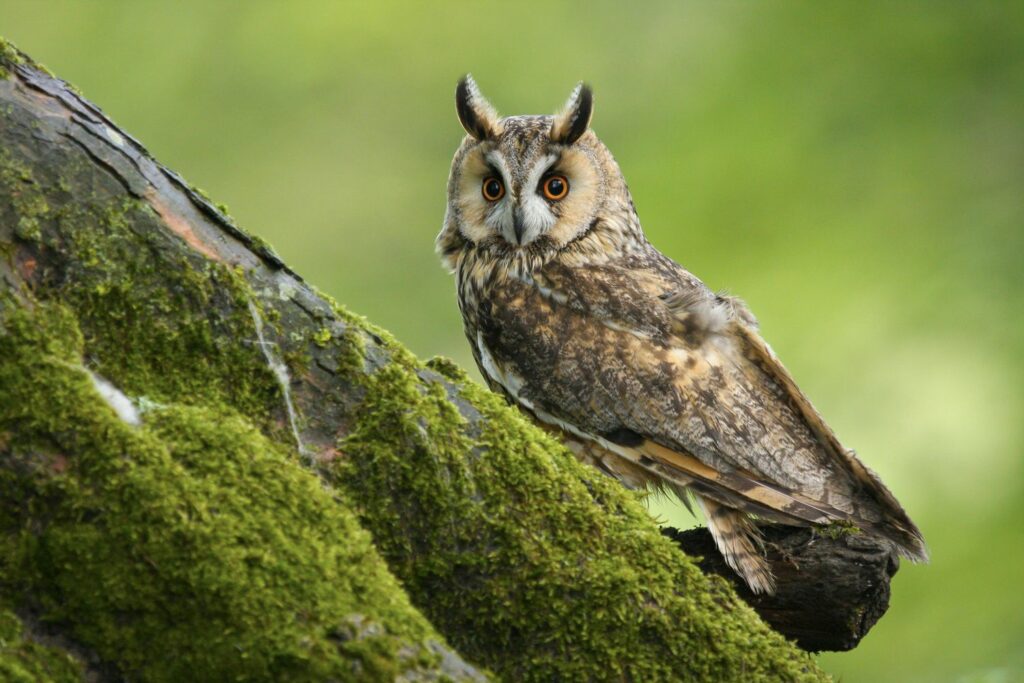







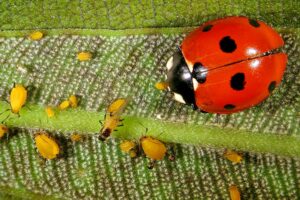







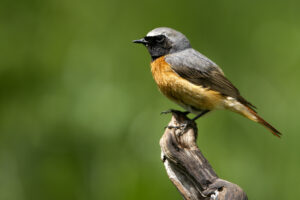

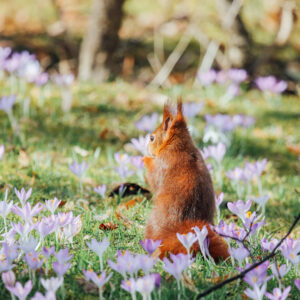
 To the Plantura products
To the Plantura products 



